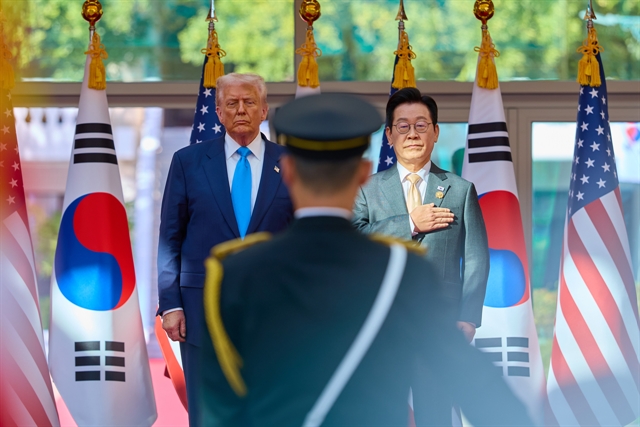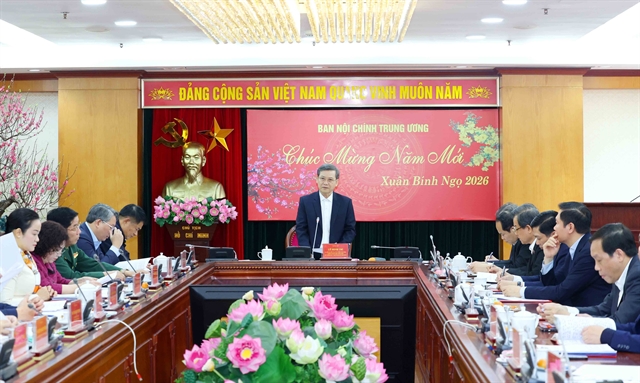 World
World

Palestinian factions said on Wednesday they agreed on the need to hold elections by the end of 2018 and praised the unity deal aimed at ending a long-running dispute between Fatah and Hamas.
CAIRO — Palestinian factions said on Wednesday they agreed on the need to hold elections by the end of 2018 and praised the unity deal aimed at ending a long-running dispute between Fatah and Hamas.
The call for elections was made in a joint statement at the end of two days of closed-door talks attended by representatives of 13 leading political parties.
The factions called on the electoral commission to prepare for presidential and legislative elections to be held by the end of next year at the latest.
They asked Palestinian president Mahmud Abbas to set a date for the polls after consulting with all sides.
The factions also praised the unity deal struck between the two largest parties – Hamas and Fatah – in October.
The Egyptian-sponsored agreement is aimed at ending the 10-year rift between them, and calls on Hamas to cede power in the Gaza Strip to Fatah by December 1.
The statement said the reconciliation deal between the Islamist movement Hamas and Abbas’s Fatah party was a "realistic start to end divisions".
It underscored the "importance of removing all obstacles in the path of the government’s efforts to immediately assume its responsibilities towards our people".
There have been no Palestinian parliamentary elections since Hamas seized control of Gaza in 2007 from Fatah, which dominates the Palestinian Authority government in the Israeli-occupied West Bank.
Palestinian and international leaders hope implementation of the unity deal could help ease the hardships of Gaza’s two million residents, who suffer from severe poverty and unemployment.
Hurdles on path to unity
The agreement faces significant stumbling blocks, in particular the future of Hamas’s vast armed wing, which has fought three wars with Israel since 2008.
Abbas has repeatedly said he would only accept one military authority in the Palestinian territories, but Hamas officials have refused to disarm.
Israel – which has maintained a crippling decade-long blockade of Gaza – has also said it would not accept any Palestinian government that includes Hamas unless the Islamist group puts down its weapons.
The Fatah-dominated Palestinian government seated in the occupied West Bank city of Ramallah has also refused to remove crippling sanctions on Gaza that include reduced electricity.
UN special coordinator for the Middle East peace process, Nickolay Mladenov, told the UN Security Council on Monday that, despite the challenges, the reconciliation "must not be allowed to fail".
"If it does, it will most likely result in another devastating conflict," he said.
In a crucial first step, Hamas handed over Gaza border crossings on November 1, and control of a number of government ministries has also been transferred.
The division between Palestinian factions has also been cited as one of the largest obstacles to meaningful peace talks with the Israelis.
Previous reconciliation attempts have failed.
The Cairo talks came as the US moved to close the Palestinian diplomatic office in Washington run by the Palestine Liberation Organisation (PLO).
Under long-standing US law, permission for PLO to maintain its mission in Washington must be renewed every six months but last week the US State Department refused to renew the permit.
The factions meeting in Cairo denounced the US move, which they see a bid to put "pressure" on the Palestinians to force them to accept US demands in any future peace talks with Israel. — AFP




